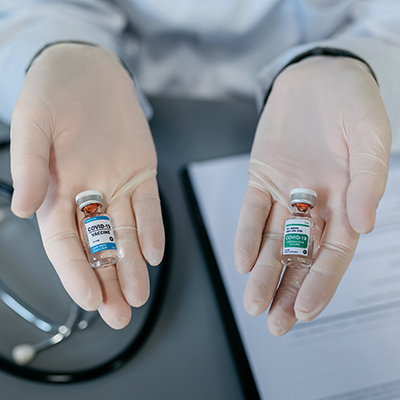January 7, 2021 -- Despite the public perception of the biotech industry as a high-risk investment, a new analysis published in PLOS One on January 6 found that over the long term, biotech firms that went public performed just as well as nonbiotech companies by various measures of financial success.
From 1980 to 2016, over 750 biotech companies completed initial public offerings (IPOs), collectively raising over $200 billion in capital from public markets, according to industry observers. These investments were made on the promise that emerging technologies would make pharmaceutical research and development more efficient, bring new classes of products to market, and establish a sector of profitable biotech companies.
While the biotech sector is well-established in the market, frequently, smaller biotech companies languish, consolidate, or cease operations without commercial success. But how common is failure in biotech compared to the broader business world?
Previous studies have pointed to the challenges inherent in putting valuations on publicly held biotech companies that are developing precommercial science and technology, owing to lack of revenue, negative earnings, and intangible assets. This perception is made worse by the high cost and high failure rate of products in clinical development, and the disproportionate negative impact of clinical failures on stock prices. Ultimately, investors have been concerned about the high-risk investments in the biotechnology industry.
In the current study, researchers from the Bentley University Center for Integration of Science and Industry examined the finances and value creation of emerging public biotech companies and compared them to a set of nonbiotech companies from 1997 to 2016. They focused on 319 biotech companies developing therapeutic products that issued IPOs over the study period, and compared their financial performance to nonbiotech companies that also went public over the same time period.
When it came to companies that eventually had their stocks delisted, there was no statistically significant difference between biotech companies and firms in the control group. In both cases, the most common reason for delisting was a merger or an acquisition.
With respect to acquisitions, more biotech companies with a market capitalization of greater than $1 billion were acquired compared to nonbiotech companies. Overall, 69 biotech companies achieved valuations over $1 billion.
Bankruptcy or liquidation was not common in either group (3.1% for biotech and 2.5% for control). There was also no difference between groups for the interval between IPO and delisting. Overall, this indicates that biotech and control companies had similar rates of success and failure, the authors wrote.
Generally, nonbiotech companies outperformed biotech companies in net value created (measure of end valuation relative to net capital raised). Biotech companies had much higher research and development expenses compared to control companies.
Biotech companies also had negative net income compared to control companies that had positive net income, except in recession years. The analysis found that 53% of biotechs and 51% of nonbiotechs failed to maintain their IPO market value, while both groups generated similar amounts of shareholder value. Both groups saw over $100 billion growth in market capitalization and shareholder value, with net value growth of over $90 billion for biotech companies and over $400 billion for control companies.
The authors noted that caution should be used in interpreting these findings, as most biotech companies with products in development were acquired before the end of the study period and most revenue from these products would not have been accrued until after acquisition. Thus, the revenues were not recognized in their analysis.
The analysis confirms earlier observations that most biotech companies have high research and development (R&D) costs, limited revenue, and net losses. Only four companies had revenues greater than $1 billion at the end of the study. The authors again attributed this to the number of companies that were acquired within several years of their product launch but before product revenue was realized.
The authors further suggested that a measure of company success in the biotechnology industry is less likely to be based on sustained revenues or profits, but rather acquisition.
"Despite the extraordinary performance of the biotech sector in recent years, biotech is still often portrayed as a high-risk investment. Our study suggests that, in fact, the high-risk, high-return pattern associated with biotech companies after their IPO is a common characteristic of companies completing IPOs from other sectors as well," said Dr. Fred Ledley, director of the Center for Integration of Science and Industry, in a statement. "This study also suggests that, for these emerging, public companies, the science-based, biotech business model generates equivalent economic value to more traditional, revenue-based business models."
Do you have a unique perspective on your research related to business or finance research? Contact the editor today to learn more.
Copyright © 2021 scienceboard.net








